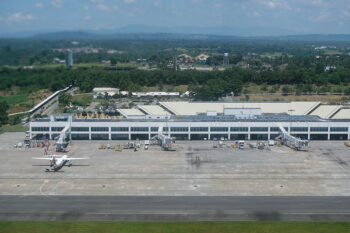MALAYBALAY CITY (MindaNews/29 February) – After being stalled for almost four months, the Sangguniang Panlalawigan last week finally authorized Bukidnon Gov. Alex Calingasan to sign the memorandum of agreement with the Office of the Presidential Adviser on the Peace Process (OPAPP) that will help former rebels reintegrate back to society.
Board member Jay Albarece, chair of the SP committee on peace and order, said the provincial board passed the resolution granting authority to Calingasan after the draft of the MOA went through a series of questioning by Vice Gov. Jose Ma. R. Zubiri Jr.
Calingasan already signed the MOA last week, which was then endorsed to OPAPP Sec. Teresita Quintos-Deles for signing.
Maggs Barrios, OPAPP peace program officer for Region 10, said the province is among the last to be able to finalize the MOA in Mindanao.
Albarece said the final draft, prepared in February after several revisions, excluded the item requiring the provincial government of Bukidnon to provide a safe house for the safety of the former rebels. The MOA went silent on this item.
The final draft also fixed the number of the unserved former rebels under the past administration’s Social Integration Program to 59 former rebels.
According to the draft, the beneficiaries who have been located will receive their reintegration assistance from the two parties covered by the guidelines and procedure to be provided, which may include livelihood and employment support, scholarship grant, support to security guarantees, legal assistance, health and medical support, employment assistance, capacity building interventions and psychological support.
OPAPP, according to the MOA, will provide reintegration assistance to the unserved former rebels but the amount was not provided.
An additional 110 recent surrenderees may also be considered for reintegration assistance after the initial identification is conducted by the parties and a report is submitted to the provincial government.
But Albarece said this has to be verified under the Joint Verification and Authentication Committee composed of representatives from the military, police, the local government and the civil society organizations.
In the board’s session earlier this month, Zubiri asked for the specific number of beneficiaries and the amount of financial assistance the provincial government will extend, among others.
The MOA covers rebels who surrendered during the previous administration but were unable to receive assistance under the dissolved Social Integration Program (SIP).
President Benigno S. Aquino III terminated the SIP upon his assumption.
The provincial government proposed the MOA under the OPAPP’s interim program, according to Hansel Echavez, provincial livelihood officer. The new integration program is dubbed Comprehensive Local Integration Plan.
He added the questions from the board arose because there has been no explanation on the changes in the integration program for former rebels.
The MOA was first endorsed by Calingasan to the board in November.
Albarece affirmed Echavez’s statement, saying the board wanted to clarify many things with OPAPP.
Echavez, who has been facilitating livelihood assistance for rebels who surrendered, said the OPAPP, the provincial government and other agencies need to reconcile their data.
He cited that the previous draft of the MOA only indicated 59 beneficiaries who have not received assistance from OPAPP instead of 169.
The number does not include those who surrendered last year with Benjamin Salusad, a former rebel who allegedly turned to banditry in San Fernando and neighboring towns.
Another contentious item in the MOA, he added, is the amount the province should give as its counterpart.
He said the new proposed MOA provides for P30,000 as livelihood assistance for each surrenderee from the provincial government, but Zubiri wanted to trim it down to P15,000.
In the SIP, Echavez added, OPAPP provided a maximum of P50,000 for livelihood assistance. But it will be based on the former rebel’s individual reintegration plan.
He said in the new OPAPP guidelines, the assistance will be based on the needs of the former rebels.
Col. Romeo Gapuz, chief of the Army’s 403rd Infantry Brigade based here, told the provincial board earlier this month the signing of the MOA is urgent as it would affect the campaign for more rebels to surrender. (Walter I. Balane / MindaNews)
